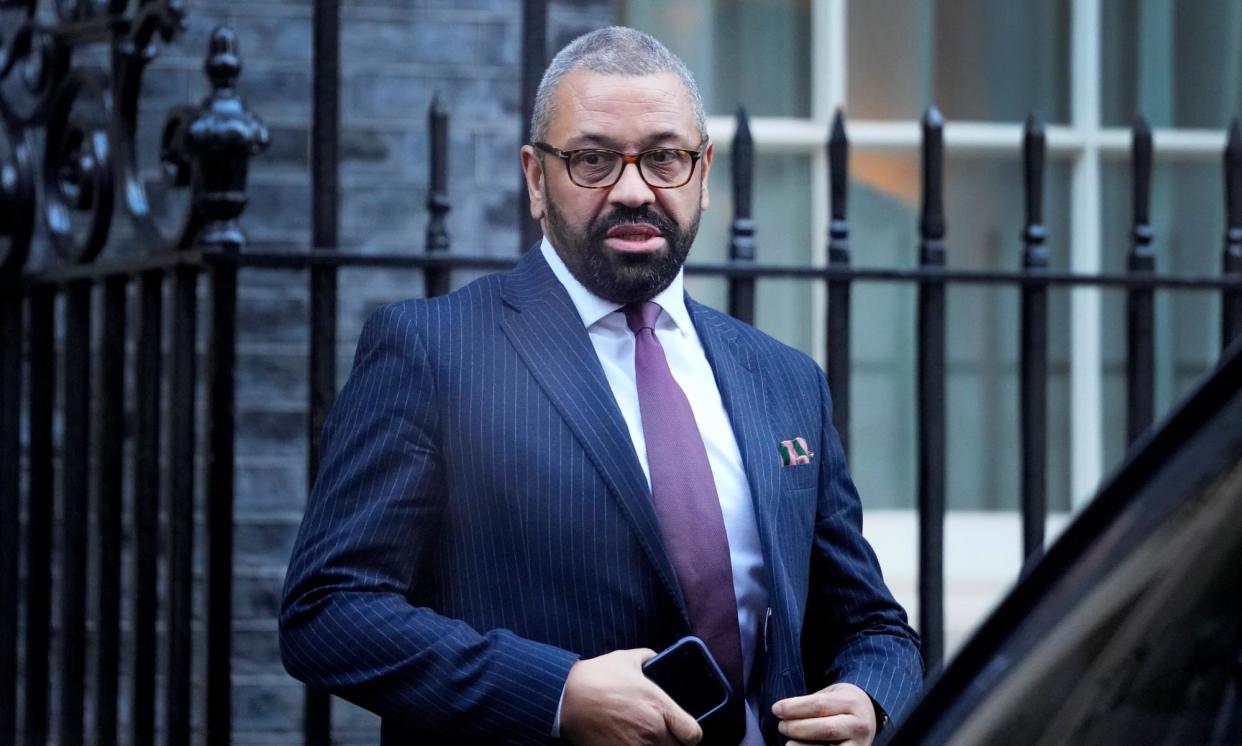Tory plan to cut net legal immigration is more drastic than most MPs expected

Soon after James Cleverly was announced as the new home secretary, one Labour frontbencher expressed surprise at the appointment.
“This must be the most liberal home secretary we’ve had in years – including during the Labour years,” the person said.
MPs on both sides of the House were stunned therefore when Cleverly, a flag-bearer for the One Nation group of Conservative MPs, unveiled what the government is calling “the biggest clampdown on legal migration ever”.
“Since my first day in the Home Office just three weeks ago, I have been determined to crack down on those who try to jump the queue and exploit our immigration system,” he told MPs, to cheers on the Conservative benches.
His tone contrasted with the one he struck just over a week ago in an interview with the Times, when he said: “We do need to make sure that we control and are seen to control immigration. We do this by work, by planning and by professionalism rather than using hyperbolic phrases about these numbers.”
And it appears to mark a complete departure from the previous stance taken by the prime minister, Rishi Sunak.
Christopher Howarth, a former Home Office adviser, told the Guardian Sunak had vetoed just such a package of measures about 18 months ago when he was chancellor.
The package overturns the post-Brexit migration system, which led to the numbers of migrants from Europe plummeting while those from outside the EU soared to fill vacancies in the workforce.
Net migration rose to 745,000 in 2022, according to the Office for National Statistics – the highest figure ever recorded. This compares with the Tories’ 2019 manifesto pledge to bring net migration levels down from where they were at the time, at about 250,000 per year.
Nearly 85% of voters now think the government is handling immigration badly. Worryingly for Conservative ministers, Labour has led on the issue – usually one of the Tories’ strongest areas – since last September.
Legal migration has been driven up by a sharp rise in the number of students entering the country, as well as tens of thousands of people fleeing Hong Kong and Ukraine.
Ministers have already announced changes to the student visa regime, including removing the right of international students to bring their family members with them, unless they are on research programmes. Furthermore, the numbers of those coming from Ukraine and Hong Kong are likely to have peaked.
For Sunak and Cleverly to make a meaningful impact on numbers, therefore, they needed to take drastic action in the few remaining areas left open to them.
Raising the salary threshold for skilled workers by nearly a half to £38,700 is likely to bring numbers down by 50,000, they estimate, while banning care workers from bringing dependants with them will cut another 100,000.
Downing Street says it is confident that the measures will not harm either growth or flagging health and social care systems across the country but others are not so sure.
Christina McAnea, the general secretary of Unison, accused the government of “playing roulette with essential services just to placate its backbenchers and the far-right”.
The free-market Institute of Directors said the policies risked raising inflation and hampering growth.
Many Conservative backbenchers were delighted with the measures, for which many have campaigned for months, though some wondered how exactly Cleverly came to be the man who delivered them.
Asked to sum up how the home secretary is likely to have felt delivering Monday’s statement, one ally said: “Uncomfortable is the word.”

 Yahoo News
Yahoo News 
